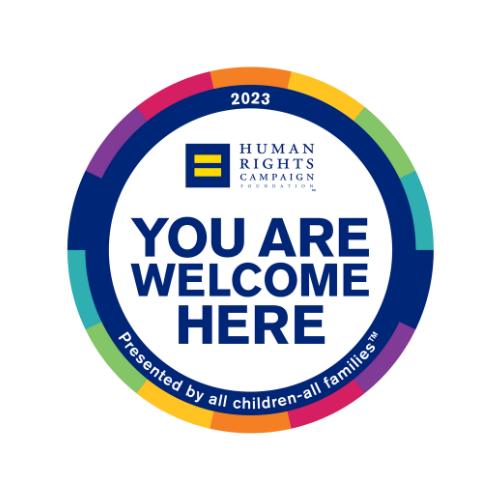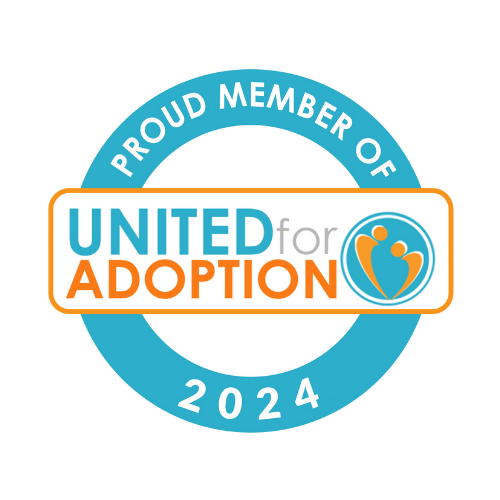By Heidi Toth
Provo Daily Herald
Sunday, July 3, 2011
Robert Brough remembers the day he pulled into a McDonald’s parking lot with his three youngest children and saw someone he didn’t quite expect — the woman who gave birth to two of his children.
He said hello to the homeless, drug-addicted woman and invited her to come into the restaurant with them. The three children played in the ball pit and talked to her. She gave 9-year-old Ashlynne a little necklace she had on. Short of relinquishing her parental rights, it was the best gift she’d given the little girl, who was already dealing with the leftovers of the prenatal drug abuse.
“See?” the petite blonde girl said, holding up the little clear and blue charm as her parents tell the story of her early life that she knows so well she can tell it herself.
Ashlynne’s story is one chapter of the Broughs’ story: More than a decade of foster care along with five children of their own, three children adopted from foster care, all with severe difficulties brought on by drug-addicted mothers, the last daughter just a few months older than the Broughs’ first grandchild. The story got a new chapter last month when the Utah Foster Care Foundation selected Utah County resident Robert Brough as the Western Region’s Foster/Adoptive Dad of the Year.
It was a surprise, to say the least. The other foster dads he knows who have gotten this award have been amazing.
“She does most of the work,” Robert Brough said of his wife, Joy Brough.
Not so, Joy said; Robert cooks, cleans, changes diapers and plays with the children, even more so now that she is in school full-time.
“That’s just everyday stuff,” Brough said, shrugging.
The other everyday stuff — digging up worms with 9-year-old Ashlynne, wrestling with 4-year-old Landon and 2-year-old Madelyn, starting whipped cream fights in the house, cleaning whipped cream off the couch when the battle didn’t stay in the kitchen and being the only dad his five biological children and three adopted children have ever known — were enough to earn him the recognition.
The Broughs decided to become foster parents about 12 years ago; they had room in the house, and Joy had volunteered with the state Division of Child and Family Services and knew of the need for foster care. The paperwork had a box to check if they’d be interested in adoption, and they looked at each other and both said they weren’t. But, Joy said, they decided to say yes anyway and just see what happened.
The first little girls in their home had been taken out of a neglected home. Their mother didn’t know how to parent, Joy said, but after a divorce the father was given custody and the two girls went home with him. For years, they’ve had children in and out of their home, some for a couple of weeks, others for close to a year. All had been abused, neglected, damaged or mistreated.
Joy remembered a little Hispanic girl who came to their home in the middle of the night, so they put her straight to bed. She woke up and found herself surrounded by a white family who didn’t speak Spanish. She didn’t speak English. Joy said the girl was terrified and tried to ask to go to the bathroom. Joy didn’t know what the girl was saying. The girl didn’t know what to do.
“So she just sat there and wet the bed,” Joy said.
Ashlynne was the first drug baby. It was January, and her family was homeless. When the police found her, she was wearing a diaper and a T-shirt. All of the adults around her were passed out.
“They were keeping her in a 5-gallon bucket that they found at a construction site,” Joy Brough said. “I don’t know how long she’d been crying, but the neighbors I guess finally turned them in.”
Other drug-affected infants followed, if only for a short time. One baby, who was HIV-positive and the youngest of eight children, from eight different fathers and a mother who was a patient in the state mental hospital. They couldn’t touch him without wearing surgical gloves and gowns. He was eventually adopted by his grandparents.
“That was pretty neat for Robert because Robert took a lot of time with that baby,” Joy said.
Landon came next. Years later, the DCFS caseworker who’d helped the Broughs adopt Ashlynne ran into her 8-months-pregnant birth mother. A few weeks later, a days-old baby boy joined his older sister; 16 months later he was adopted into the family.
Madelyn was supposed to be a short-termer; relatives of the birth mother were going to take her. After several weeks in, they changed their minds. The caseworker returned to the Broughs and asked if they wanted another child. Maddie was 7 months old when she became Brough child No. 8.
“To us it’s like they always were ours,” Robert said. “I couldn’t ever picture us without ’em.”






